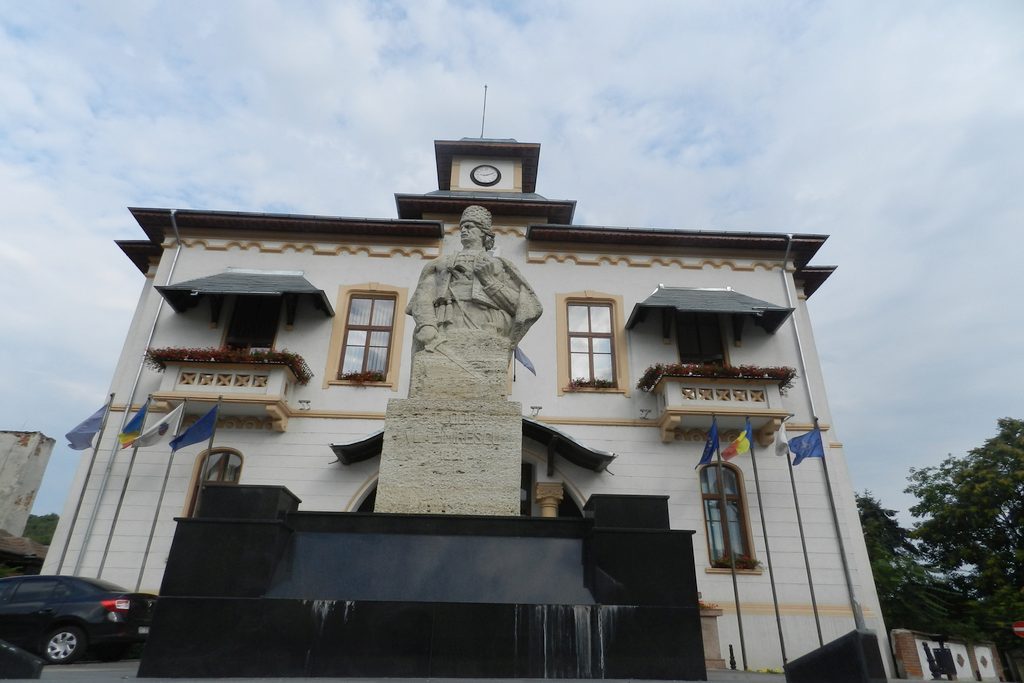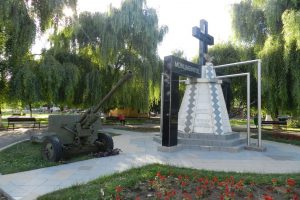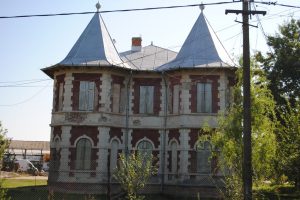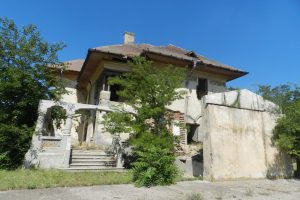

Tudor Vladimirescu’s statue was inaugurated in 1968 being the work of the sculptor Vasile Blendea.
Tudor Vladimirescu (born in 1780, as Vladimir – died on June 7, 1821 in Târgovişte) was an emblematic figure for the history of Romanian Country in the early nineteenth century, being the leader of the 1821 Revolution and of the pandours.
He was born in the village Vladimiri (in Gorj), in a family of freeholders. He studied and learned the Greek language in the house of boyar Ioniță Glogoveanu, from Craiova, who made from the clever and skillful boy the estate steward and that he had used him in the trade affairs, especially in the exports of cattle. Tudor Vladimirescu made up a fortune by buying land, making trade on his own. He emancipated from the service of boyar Ioniță Glogoveanu entering the ranks of pandours – an army with semi-permanent obligations – and participated in the Russo-Turkish war in 1806 – 1812, being rewarded by Russian officials with the cavalry order, Order Vladimir class III. In 1806 he was appointed foreman of relam in Cloşani, ie administrator of a mountain district, a position he will hold until 1820. Being present, in the country capital for supporting a process of an estate, in front of the Divan, Tudor finds out about the decision of Etheria to start the Greece’s liberation movement. Considering the right time to raise the people to fight, he has some discussions with the representatives of the Eteria for military cooperation, in order that “the pandours to facilitate the passage of Ypsilanti over the Danube”.
He signed a deal with the goverment committee whereby, Tudor would raise “people in arms” with the aim of removing the Phanariot regime. The, too revolutionary content of the “Proclamation from Padeş” frightened the landowners, which sent army corps to stop him. Addressing to Nicolae Văcărescu, one of those incharged with defeating the pandours army Tudor shows that “perhaps with you on the people with whose blood they have fed and gilded the whole Boyar nation Boyar, you reckon as nothing, and only the thieves thou number them motherland … But how you do not reckon that motherland is calle the people and not caste of robbers”.
Diplomat Tudor permanently ensures the pashas from the Danube and the Ottoman Porte that the people were revolted because “the terrible suffers came from the union of boyars earthlings with those of time sent as princes and rulers of this people”. Entering Bucharest leading the ” assembly of the people” is received with enthusiasm by the popular masses in the capital. Preia de fapt, în primăvara anului 1821, conducerea țării, fiind numit de popor „Domnul Tudor“. Alexander Ypsilanti’s presence in Bucharest leading an undisciplined army, after his action was disavowed, as well as the Romanians, by Russia, put him in a difficult situation. Tudor asks the Eteria leader to cross the Danube, as initially promised, so that the Romanian Country may not be transformed into a theater of war. Hetaerist leaders have hatched a plot to eliminate him. Lifted by treason from Goleşti on May 21 Tudor was killed by the heads of hetaerists in Targoviste, on the night of 27 to 28, probably accused of collaboration with the Ottomans against hetaerist, a fact that history never confirmed.



